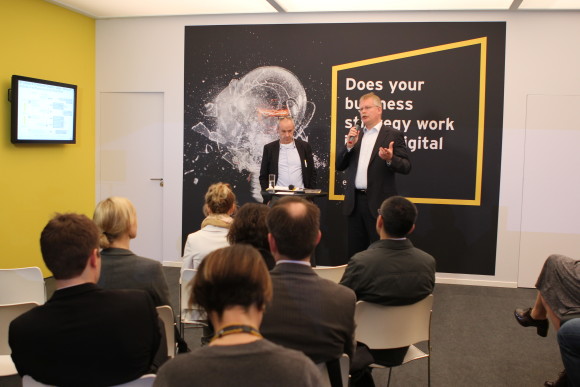Guest article | EY: Get immediate benefit from your data
What industry needs is not necessarily more data but better use of data. Only then will the benefits of Industry 4.0 materialize: the ability to maximize productivity, predict and prevent machine breakdown, manage product life cycles and design smarter parts.
That’s the view of EY’s Frank Müller, Executive Director, Manufacturing and Maintenance for Germany, Switzerland and Austria. Speaking at CODE_n, he said that some companies are failing to realize the full potential of the Internet of Things because they are capturing huge volumes of data without considering what it is for.
From reactive to predictive mode
“Fifty years ago, you had reactive maintenance, which meant waiting until a machine broke down and then repairing it,” he said. “Then we moved into preventative maintenance, where you would repair machines after a certain number of kilometers or a set time interval. Today, we are in the era of predictive maintenance, where we can act before problems arise: sensors are cheaper and deliver much more sophisticated information, so you can initiate maintenance before breakdowns occur.” However, the sheer volume of data that can now be captured means many companies are unable to interpret and apply the information they are so diligently gathering.
What is data for?
Companies must avoid this pitfall and ensure they capture the benefits of operational efficiency, cost efficiency and lead time, Müller said. EY can help clients identify and gather the data that will be truly useful to them, and focus on short-term sustainable improvements.
“I would advise companies to think about what data to capture, at what frequency and for what purpose: concentrate on the vital few defects that will really make a difference,” he explained. “For example, if stoppages cost your company the most money, focus on finding the basic stops, analyze the top three causes and tackle them. Otherwise, the danger is that companies sacrifice commonsense for terabytes of data with a purely theoretical value.”







Write a comment